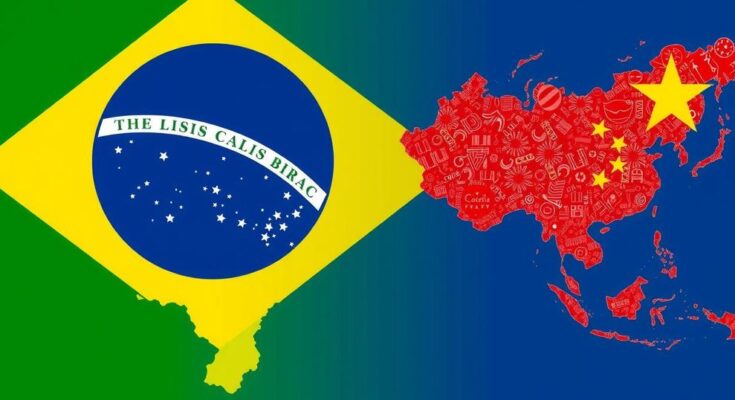Brazil is experiencing challenges to its influence within the expanding BRICS group. Following the addition of new members, Brazil works to assert its power, particularly through opposing Venezuela’s inclusion. This reflects a broader strategy of supporting democratic changes in neighboring nations while positioning itself to shape the group’s direction amid growing diversity.
Brazil, a founding member of the BRICS group, is currently navigating the complexities of its influence as the organization expands. Historically, Brazil has held a position of internal authority within BRICS since its inception, particularly after being joined only by South Africa. However, with the recent inclusion of four new members—Egypt, Ethiopia, Iran, and the United Arab Emirates—Brazil faces potential marginalization in terms of its power and influence amongst its peers. This expansion has prompted debates within the group over its direction, with certain members advocating for a more anti-Western stance while Brazil, alongside India and South Africa, favors a non-aligned approach. Brazil’s efforts to maintain its influence became evident at the recent BRICS summit in Kazan, Russia, where the country actively opposed the proposition to admit Venezuela as a partner. This opposition marks a significant diplomatic move, particularly following Brazil’s refusal to acknowledge President Nicolás Maduro’s controversial election victory. Brazil’s foreign policy advisors articulated a need to cautiously support democratic changes in Venezuela, reflecting a strategic shift in Brazil’s diplomatic relations in line with its long-term interests. Additionally, the acceptance of former Brazilian President Dilma Rousseff for an extended term at the BRICS New Development Bank (NDB) signifies Brazil’s ongoing involvement in key initiatives within the BRICS framework. As Brazil prepares to assume the rotating presidency of BRICS in the upcoming year, it is positioned to influence the group’s trajectory, particularly in the context of diversifying financial systems away from the dollar. Overall, the balance of power within BRICS is in flux as new countries seek entry, raising questions about Brazil’s historical dominance within the alliance. As it stands, Brazil’s role appears pivotal in shaping the future policies of BRICS, particularly concerning democratic implications in its neighboring nations.
The BRICS group, originally composed of Brazil, Russia, India, China, and later South Africa, has been a platform for emerging economies to collaborate on various political and economic issues. As international landscapes shift and new members seek to join BRICS, Brazil is confronted with the potential dilution of its influence despite being one of the founding nations. The inclusion of countries like Iran raises apprehensions among existing members about the bloc’s identity and purpose, especially regarding its relations with Western powers. Brazil’s recent actions, including its opposition to Venezuela’s inclusion and the reaffirmation of its support for democratic processes in the region, highlight the challenges it faces in maintaining its traditional role within the evolving group.
In conclusion, Brazil is at a critical juncture within the BRICS organization as it faces pressures from an expanding membership that threatens to dilute its historical influence. Its current efforts to maintain authority reflect an emerging strategy focused on advocating for democratic principles in the region, particularly regarding Venezuela. As Brazil prepares for its upcoming presidency, it holds substantial potential to shape the future of BRICS amidst both internal and external challenges.
Original Source: foreignpolicy.com




